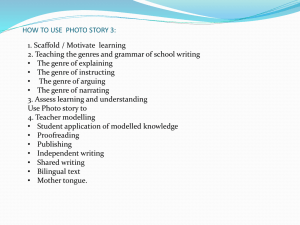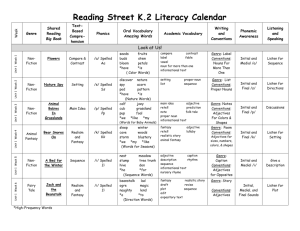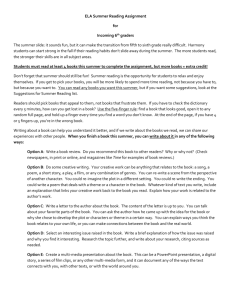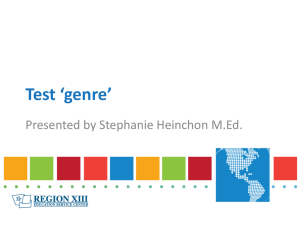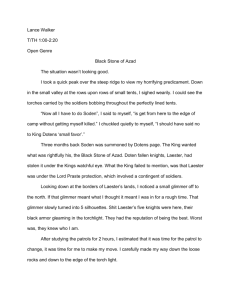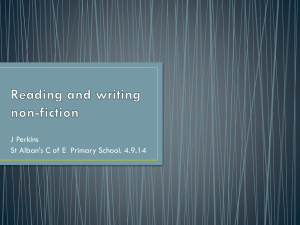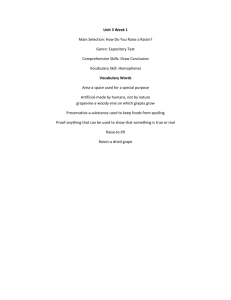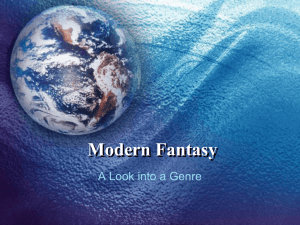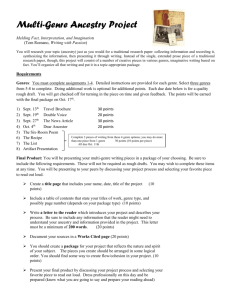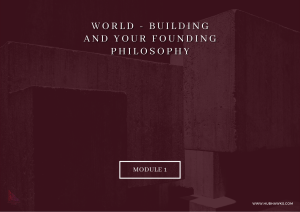Paper proposal for _Masters of the Universe_, Participations
advertisement
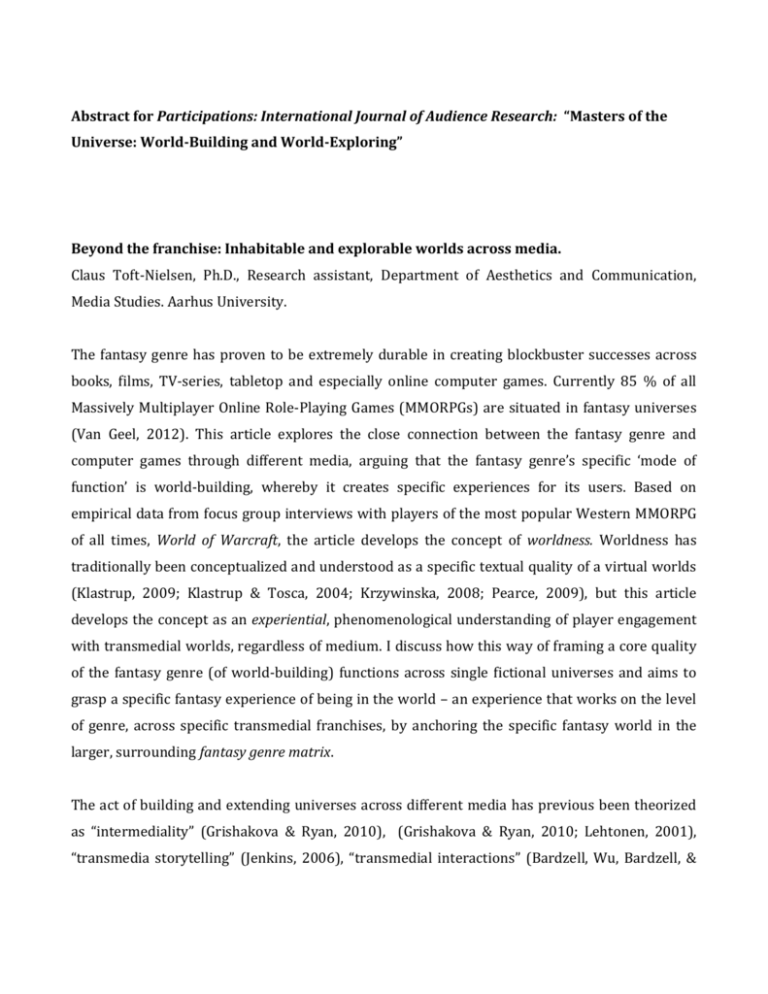
Abstract for Participations: International Journal of Audience Research: “Masters of the Universe: World-Building and World-Exploring” Beyond the franchise: Inhabitable and explorable worlds across media. Claus Toft-Nielsen, Ph.D., Research assistant, Department of Aesthetics and Communication, Media Studies. Aarhus University. The fantasy genre has proven to be extremely durable in creating blockbuster successes across books, films, TV-series, tabletop and especially online computer games. Currently 85 % of all Massively Multiplayer Online Role-Playing Games (MMORPGs) are situated in fantasy universes (Van Geel, 2012). This article explores the close connection between the fantasy genre and computer games through different media, arguing that the fantasy genre’s specific ‘mode of function’ is world-building, whereby it creates specific experiences for its users. Based on empirical data from focus group interviews with players of the most popular Western MMORPG of all times, World of Warcraft, the article develops the concept of worldness. Worldness has traditionally been conceptualized and understood as a specific textual quality of a virtual worlds (Klastrup, 2009; Klastrup & Tosca, 2004; Krzywinska, 2008; Pearce, 2009), but this article develops the concept as an experiential, phenomenological understanding of player engagement with transmedial worlds, regardless of medium. I discuss how this way of framing a core quality of the fantasy genre (of world-building) functions across single fictional universes and aims to grasp a specific fantasy experience of being in the world – an experience that works on the level of genre, across specific transmedial franchises, by anchoring the specific fantasy world in the larger, surrounding fantasy genre matrix. The act of building and extending universes across different media has previous been theorized as “intermediality” (Grishakova & Ryan, 2010), (Grishakova & Ryan, 2010; Lehtonen, 2001), “transmedia storytelling” (Jenkins, 2006), “transmedial interactions” (Bardzell, Wu, Bardzell, & Quagliara, 2007), “layered worlds” (Bordwell, 2006), or “multiple platforms” (Jeffery-Poulter, 2003). These concepts are all centered on the coordinated and overall strategy of the sender or the world-builder. The fantasy genre matrix is, in contrast to all of the above-mentioned concepts, suited for working with experiences on the level of genre, across specific fantasy franchises and across the singular media technology – from within. The article is a result of a 3year study and will draw on literary theory, genre theory, computer game theory, as well as audience and fan studies. References Bardzell, S., Wu, V., Bardzell, J., & Quagliara, N. (2007). Transmedial interactions and digital games. Paper presented at the Proceedings of the international conference on Advances in computer entertainment technology, Salzburg, Austria. Bordwell, D. (2006). The Way Hollywood Tells It: Story and Style in Modern Movies. Berkeley: University of California Press. Grishakova, M., & Ryan, M.-L. (2010). Intermediality and storytelling. New York, NY: De Gruyter. Jeffery-Poulter, S. (2003). Creating and Producing Digital Content Across Multiple Platforms. Journal of Media Practice, 3(3). Jenkins, H. (2006). Convergence culture : Where old and new media collide. New York,NY: New York University Press. Klastrup, L. (2009). The Worldness of EverQuest: Exploring a 21st Century Fiction. Game Studies Retrieved june 24, 2013, from http://gamestudies.org/0901/articles/klastrup Klastrup, L., & Tosca, S. (2004). Transmedial Worlds - Rethinking Cyberworld Design. Paper presented at the Proceedings of the 2004 International Conference on Cyberworlds. Krzywinska, T. (2008). World Creation and lore: World of Warcraft as Rich Text. In H. Corneliussen & J. W. Rettberg (Eds.), Digital culture, play, and identity a World of Warcraft reader. London: MIT Press. Lehtonen, M. (2001). On No Man's Land: Thesis on Intermediality. Nordicom Review, 1. Pearce, C. (2009). Communities of play : emergent cultures in multiplayer games and virtual worlds. Cambridge, MA: MIT Press. Van Geel, I. (2012). MMOData.net. Retrieved October 5, 2013 http://users.telenet.be/mmodata/Charts/genre.png
